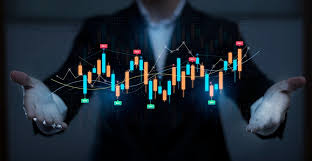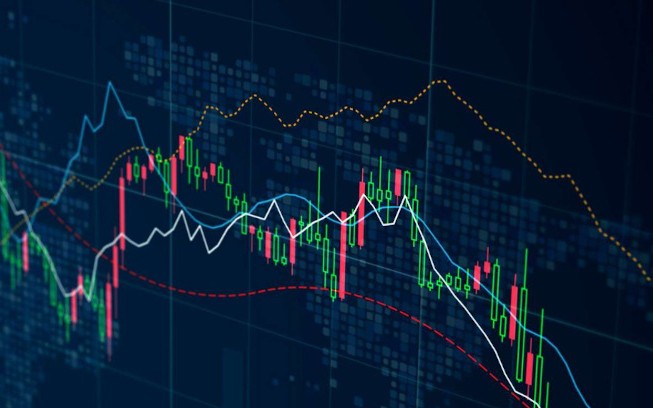Mastering Forex Trading The Benefits of Demo Trading 1756901954

Mastering Forex Trading: The Benefits of Demo Trading
In the fast-paced world of Forex trading, understanding the intricacies of currency markets can be daunting for beginners. One of the most effective ways to ease into trading is through demo trading forex Trading Broker KW demo accounts. These virtual accounts allow traders to practice their skills without risking real money, making them an essential tool in the modern trader’s toolkit. In this article, we will delve into the concept of demo trading, its advantages, and how to make the most out of a demo account.
What is Demo Trading?
Demo trading refers to a practice account provided by most Forex trading platforms. It simulates live market conditions but utilizes virtual funds instead of real money. This setup allows traders to experiment with various strategies, familiarize themselves with trading platforms, and understand market dynamics without the psychological pressure of risking actual capital.
Why Should You Consider Demo Trading?
Many aspiring traders rush into the Forex market without a proper understanding of how it works. Here are some compelling reasons to consider using a demo account:
1. Risk-Free Learning
Demo accounts offer an excellent opportunity to learn about trading without risking your hard-earned money. By using virtual funds, traders can make mistakes and learn from them without facing devastating financial consequences.
2. Familiarization with Trading Platforms
The Forex trading platforms can often be complex with various tools and indicators available. A demo account allows traders to navigate these platforms thoroughly, understanding how to execute trades, set stop losses, and use other features effectively.
3. Testing Strategies
One of the most significant advantages of demo trading is the ability to implement and test trading strategies before applying them in live markets. Traders can evaluate the effectiveness of various strategies, make adjustments, and build a robust trading plan based on their findings.
4. Building Confidence
Trades made on demo accounts can help build confidence. As traders develop their skills and see success in virtual trading, they may feel more prepared when they switch to live trading. Confidence plays a crucial role in trading performance, and practicing on a demo account is an excellent way to achieve it.
How to Get Started with Demo Trading
Starting with a demo trading account is straightforward. Here’s a step-by-step guide to help you begin your journey:
1. Choose a Reputable Broker
Selecting the right Forex broker is vital. Look for brokers that offer demo accounts with realistic conditions, such as Trading Broker KW. A good broker will also provide educational resources and support to help you along the way.
2. Register for a Demo Account
Once you’ve chosen your broker, you’ll need to register for a demo account. This process usually requires providing some personal information and may involve verifying your identity, even for a demo account.
3. Fund Your Demo Account
Most demo accounts will come pre-loaded with virtual funds that you can use to start trading immediately. Some brokers allow you to adjust the amount of virtual money in your account, so you can practice with larger sums if desired.

4. Start Trading
Begin by executing your first trades. Take your time to familiarize yourself with the platforms and tools. Experiment with different types of trades, analyze your performance, and track your progress over time.
Best Practices for Demo Trading
While demo trading can be an invaluable part of your learning process, there are best practices to follow to maximize its benefits:
1. Treat It Like Real Trading
One common mistake traders make is not treating their demo trading seriously. Approach demo trading as if you are using real money. Set goals, manage your virtual funds, and follow a trading plan to replicate the emotional and psychological aspects of live trading.
2. Keep a Trading Journal
Documenting your trades, including the rationale behind your decisions, can help you analyze and refine your strategies over time. A trading journal is a powerful reflection tool that can expose patterns in your trading behavior.
3. Continuously Learn
Use your demo trading experience to learn continuously. Research different trading strategies, attend webinars, read articles, and engage with the trading community. This knowledge will benefit your future trading endeavors.
4. Set Time Limits
While it may be tempting to spend endless hours on demo trading, it’s essential to set time limits. Treat it like a real commitment, and ensure you balance your practice with learning and other responsibilities.
Transitioning to Live Trading
Once you feel confident in your trading skills, it’s time to transition to live trading. Here are a few tips to make this shift easier:
1. Start Small
When transitioning to live trading, consider starting with a small investment. This approach allows you to retain the lessons learned during demo trading while experiencing the real market’s pressures and dynamics.
2. Implement Risk Management
Utilize risk management strategies to protect your capital and minimize losses. Techniques such as setting stop-loss orders and managing your leverage can help ensure that you stay in the game even during challenging periods.
3. Stay Emotionally Disciplined
The emotions of trading can be vastly different in a live environment compared to a demo account. Stay disciplined and follow your trading plan. Avoid chasing losses or becoming too greedy if you have a winning streak.
Conclusion
Demo trading is a critical step for any aspiring Forex trader. It provides a risk-free environment to learn, develop strategies, and gain confidence before risking real money. By treating demo trading seriously, continuously learning, and implementing best practices, traders can set a solid foundation for their Forex trading journey. Remember, every expert was once a beginner; embrace the learning curve of demo trading, and prepare for the exciting adventure that lies ahead!
